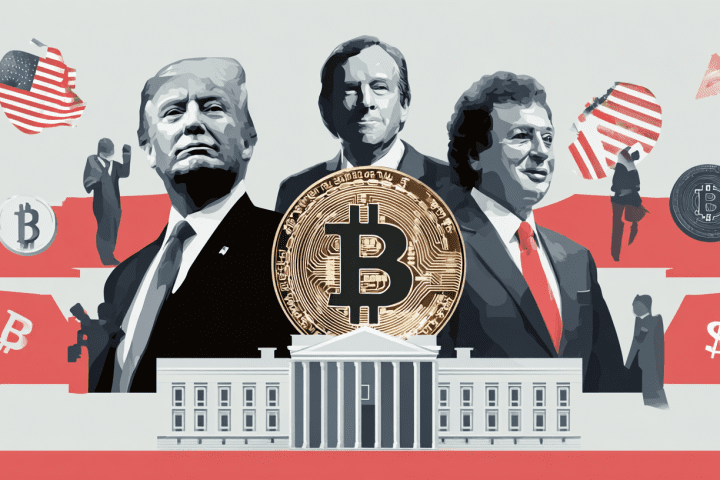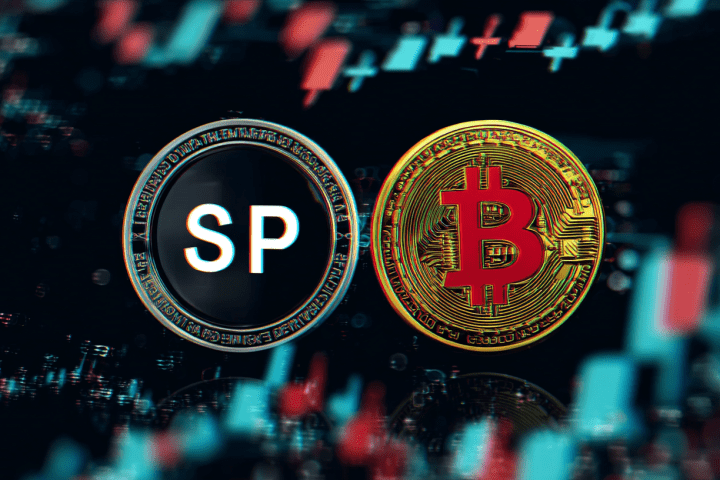The emergence of blockchain technology and cryptocurrency is fundamentally transforming the landscape of work, education, and skill development across industries. From creating entirely new job categories like smart contract developers and DeFi analysts to enabling decentralized education platforms and skill verification systems, these technologies are reshaping how we learn, work, and prove our capabilities in the digital economy.
This transformation extends beyond traditional tech roles to impact virtually every sector, as businesses integrate blockchain solutions and cryptocurrencies into their operations. Understanding these changes is crucial for professionals, educators, and organizations preparing for a future where digital literacy, decentralized work models, and blockchain-based credentials become standard components of career development.
The Emergence of Crypto-Native Careers
Blockchain Development and Technical Roles
The blockchain industry has created an entirely new category of technical roles that didn’t exist a decade ago. Smart contract developers, blockchain architects, and DeFi protocol engineers command premium salaries as demand far exceeds supply in these specialized fields. Major companies like ConsenSys, Chainlink, and Polygon are competing aggressively for top talent, often offering compensation packages that exceed traditional tech industry standards.
These roles require unique skill combinations that bridge traditional software development with cryptographic knowledge, economic understanding, and security expertise. The interdisciplinary nature of blockchain development creates opportunities for professionals from diverse backgrounds to transition into high-demand positions.
Non-Technical Blockchain Careers
The blockchain ecosystem extends far beyond technical development to encompass roles in business development, marketing, legal compliance, and user experience design. Cryptocurrency exchanges, DeFi protocols, and NFT platforms require marketing specialists who understand crypto communities, legal experts familiar with digital asset regulations, and designers who can create intuitive interfaces for complex financial products.
The growth of institutional crypto adoption has created demand for traditional finance professionals who can bridge legacy financial systems with blockchain technology, including roles in custody services, institutional sales, and regulatory compliance.
Decentralized Work and the Gig Economy
DAO-Based Employment Models
Decentralized Autonomous Organizations (DAOs) are pioneering new models of work organization that challenge traditional employment structures. Contributors to projects like MakerDAO, Uniswap, and Gitcoin earn compensation through token distributions and bounty programs rather than traditional salaries, creating more flexible and merit-based compensation systems.
Revolutionary DAO Work Structures:
- Contribution-based compensation through token rewards and bounty systems
- Decentralized governance where workers have voting rights on organizational decisions
- Global talent access without geographic restrictions or visa requirements
- Transparent compensation systems where all payments are recorded on blockchain
- Flexible engagement models allowing part-time and project-based participation
New Forms of Professional Identity:
- Reputation systems built on blockchain-verified contributions and achievements
- Portable professional profiles that aren’t tied to specific employers or platforms
- Skill verification through on-chain proof of work and community endorsements
- Cross-organizational collaboration enabled by shared identity and reputation systems
- Merit-based advancement opportunities based on demonstrated value creation
These innovations in work organization could influence traditional companies to adopt more flexible, transparent, and merit-based employment practices.
Freelancing and Independent Work
Cryptocurrency enables new models of freelancing and independent work through platforms that facilitate direct payments without traditional intermediaries. Freelancers can receive payments instantly in stablecoins, access global markets without currency conversion fees, and build portable reputation systems that aren’t controlled by individual platforms.
The programmable nature of smart contracts enables automated freelance arrangements where payments are released upon completion of verifiable milestones, reducing disputes and improving trust between clients and contractors.
Blockchain-Based Education and Credentialing
Decentralized Learning Platforms
Educational platforms built on blockchain technology are creating new models for learning and skill development that emphasize practical application over traditional academic credentials. Platforms like Rabbit Hole and Layer3 gamify learning about DeFi, blockchain development, and cryptocurrency trading through hands-on quests and challenges.
These platforms demonstrate how blockchain technology can create more engaging and practical educational experiences that directly connect learning with real-world application and career opportunities.
Verifiable Credentials and Skill Certification
Blockchain-based credentialing systems enable tamper-proof verification of skills, certifications, and educational achievements. Organizations like MIT and IBM have experimented with blockchain diplomas and professional certifications that can be independently verified without contacting issuing institutions.
This technology addresses the growing problem of credential fraud while enabling more portable and flexible career development where professionals can accumulate verified achievements from multiple sources throughout their careers.
Micro-Learning and Skill Stacking
The modular nature of blockchain education encourages micro-learning approaches where professionals develop specific skills in areas like smart contract auditing, tokenomics design, or DeFi yield strategies. This skill stacking approach enables career pivots and specialization development without requiring formal degree programs.
Professional development in blockchain and crypto often happens through community participation, open-source contributions, and practical project experience rather than traditional classroom education.
10 Essential Skills for the Blockchain-Powered Future
The transformation of work through blockchain and cryptocurrency creates demand for new skill combinations that blend technical knowledge with business acumen and community engagement:
- Smart Contract Development and Auditing: Programming skills in Solidity, Rust, or other blockchain-specific languages combined with security auditing capabilities to identify vulnerabilities and optimize gas usage in decentralized applications.
- Tokenomics and Mechanism Design: Understanding of economic principles, game theory, and incentive structures to design sustainable token economies and governance mechanisms for DeFi protocols and DAOs.
- DeFi Protocol Analysis and Strategy: Ability to analyze decentralized finance protocols, assess risks and yields, and develop sophisticated strategies for liquidity provision, yield farming, and portfolio optimization across multiple chains.
- Blockchain Data Analysis and On-Chain Analytics: Skills in querying blockchain data, analyzing transaction patterns, and generating insights from on-chain metrics using tools like Dune Analytics, The Graph, and custom data pipelines.
- Community Building and DAO Governance: Understanding of community dynamics, governance mechanisms, and social coordination tools needed to build and manage decentralized communities and organizations.
- Cross-Chain Technology and Interoperability: Knowledge of bridge protocols, layer-2 solutions, and multi-chain architectures that enable seamless interaction between different blockchain ecosystems.
- NFT Creation and Marketplace Strategy: Skills in digital art creation, metadata management, and marketplace optimization for non-fungible tokens across various platforms and use cases.
- Cryptocurrency Compliance and Risk Management: Understanding of evolving regulatory frameworks, AML/KYC requirements, and risk assessment methodologies for digital assets and blockchain applications.
- Decentralized Identity and Privacy Technologies: Knowledge of self-sovereign identity systems, zero-knowledge proofs, and privacy-preserving technologies that protect user data while enabling verification.
- Web3 User Experience and Interface Design: Design skills specific to decentralized applications, wallet integration, and creating intuitive interfaces for complex blockchain interactions and financial products.
Interdisciplinary Skill Integration
Success in blockchain careers often requires combining technical skills with domain expertise from traditional industries. Healthcare blockchain applications require medical knowledge, supply chain solutions need logistics expertise, and financial DeFi protocols benefit from traditional finance understanding.
This interdisciplinary requirement creates opportunities for professionals from various backgrounds to transition into blockchain careers by combining their existing expertise with new technical skills.
Traditional Industries Adopting Blockchain Skills
Financial Services Transformation
Traditional financial institutions are rapidly adopting blockchain technology for settlements, cross-border payments, and digital asset custody. This transformation creates demand for professionals who can bridge traditional finance with blockchain technology, requiring skills in both domains.
Banks like JPMorgan and Goldman Sachs are hiring blockchain developers, crypto traders, and digital asset specialists as they build internal capabilities for serving institutional clients interested in cryptocurrency exposure.
Supply Chain and Logistics Innovation
Global supply chains are integrating blockchain technology for transparency, traceability, and efficiency improvements. Companies like Walmart and Maersk require professionals who understand both supply chain operations and blockchain implementation to manage these complex systems.
The combination of IoT devices, blockchain tracking, and smart contracts creates new roles in supply chain technology that require multidisciplinary skills spanning logistics, technology, and data analysis.
Healthcare and Identity Management
Healthcare organizations are exploring blockchain applications for medical records, drug traceability, and patient identity management. These applications require professionals who understand healthcare regulations, privacy requirements, and blockchain technology implementation.
The sensitive nature of healthcare data creates demand for specialized roles in blockchain privacy, compliance, and security that combine technical blockchain skills with healthcare domain knowledge.
Remote Work and Global Talent Access
Geographic Decentralization of Opportunities
Blockchain and cryptocurrency enable truly global talent markets where geographic location becomes less relevant for accessing opportunities. Developers in emerging markets can contribute to major DeFi protocols, while marketing specialists can serve global crypto communities from anywhere with internet access.
This geographic decentralization creates opportunities for talent in regions with limited traditional tech opportunities while enabling organizations to access global skill pools without relocation requirements.
Cultural and Communication Skills
The global nature of blockchain work increases the importance of cross-cultural communication skills and ability to collaborate across time zones and cultural contexts. Successful blockchain professionals often develop strong written communication skills and cultural sensitivity.
Community management roles in global crypto projects particularly require understanding of different cultural contexts and communication styles to effectively engage diverse user bases.
Educational Institution Adaptation
University Programs and Blockchain Education
Traditional universities are rapidly developing blockchain and cryptocurrency course offerings to meet student demand and industry needs. Stanford, MIT, and other leading institutions have created dedicated blockchain research centers and degree programs.
The interdisciplinary nature of blockchain education challenges traditional academic silos, leading to innovative program structures that combine computer science, economics, law, and business studies.
Corporate Training and Reskilling Programs
Large corporations are investing heavily in blockchain training programs to reskill existing employees for new roles involving cryptocurrency and blockchain technology. IBM, Accenture, and other consulting firms have developed comprehensive blockchain education programs for their workforce.
These corporate reskilling initiatives often focus on practical application rather than theoretical knowledge, emphasizing hands-on experience with blockchain platforms and tools.
Challenges and Barriers to Adoption
Skills Gap and Training Requirements
The rapid pace of blockchain innovation creates persistent skills gaps as educational institutions struggle to keep pace with industry developments. Traditional computer science programs may not adequately prepare graduates for blockchain-specific challenges and opportunities.
The practical nature of blockchain development means that much learning happens through hands-on experience and community participation rather than formal education, creating barriers for those without access to supportive communities.
Regulatory Uncertainty and Career Risks
The evolving regulatory environment for cryptocurrency and blockchain creates uncertainty for professionals considering career transitions into these fields. Regulatory changes could significantly impact job opportunities and career trajectories in blockchain industries.
Professionals must balance the high growth potential of blockchain careers with the inherent uncertainty and volatility of emerging technology sectors.
Future Outlook and Trends
Integration with Emerging Technologies
The convergence of blockchain with artificial intelligence, Internet of Things, and virtual reality creates new categories of roles that require skills in multiple emerging technologies. These convergent roles may offer the highest growth potential but also require the most diverse skill sets.
Professionals who can navigate multiple emerging technology domains while understanding their interactions and combined applications will likely find the most opportunities in future markets.
Mainstream Adoption and Normalization
As blockchain technology becomes more mainstream, specialized blockchain roles may evolve into standard requirements for traditional positions. Understanding cryptocurrency and blockchain may become as essential as internet literacy is today.
This mainstream adoption could reduce the premium salaries for blockchain specialists while creating broader opportunities across all industries for professionals with relevant skills.
Conclusion
The future of work, education, and skills is being fundamentally reshaped by blockchain technology and cryptocurrency adoption. From creating entirely new career categories to enabling decentralized work models and revolutionizing credentialing systems, these technologies offer both tremendous opportunities and significant challenges for professionals and organizations.
Success in this evolving landscape requires adaptability, continuous learning, and willingness to engage with new technologies and work models. Those who can combine traditional domain expertise with emerging blockchain skills will be best positioned to thrive in the decentralized future of work.
The transformation is still in early stages, suggesting that current investments in blockchain education and skill development will likely yield significant returns as these technologies become more deeply integrated into the global economy and standard business operations.











